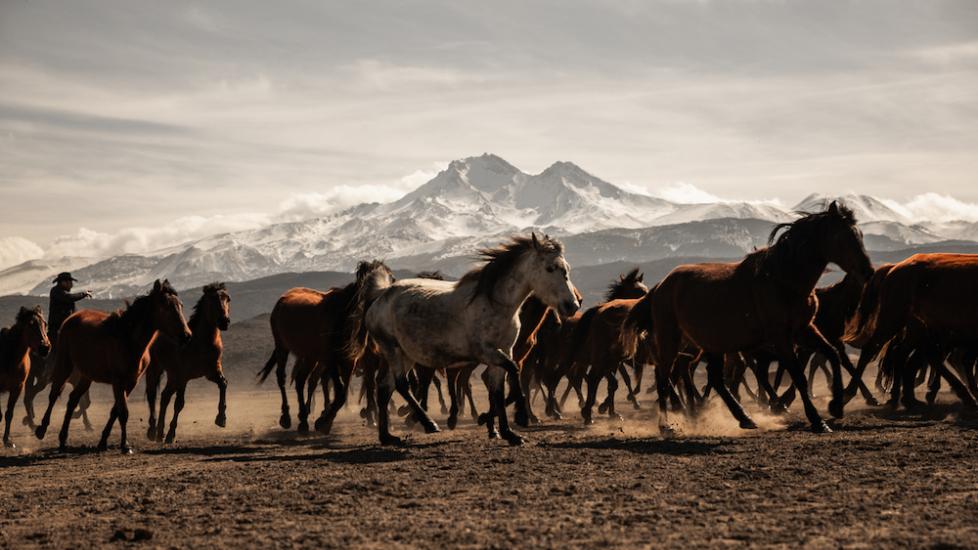Anadolu
The Anadolu, better known as the Anatolian horse, is a distinguished breed that embodies the rich cultural heritage of the Anatolian region in Turkey.
Physical Characteristics
When you observe the Anadolu's well-shaped head, which tapers gracefully to a small muzzle, you can see its Arab and Turkmene ancestry. In keeping with its refined head, the Anadolu has a small mouth, flared nostrils, sloping croup as well as low withers and a narrow chest on a compact body with strong legs.
The Anadolu typically stands between 14.2 and 15.2 hands (58–62 inches) at the withers. Typically, an Anadolu horse has a solid black, gray, or rich chestnut coat. Although it is not a superb racer, it is known for its great endurance in the harshest conditions.
Personality and Temperament
Like most pack horses that are native to mountainous and rugged terrain, the Anadolu is an undemanding animal. It is a hard-working horse with a calm and willing disposition, making them highly suitable for a range of equestrian activities. They are quick learners and are usually very responsive to training.
History and Background
The Anadolu is the most common breed native to Turkey with roughly one million head of Anadolu in the country today. It also one of the oldest recognized horse breeds, with evidence that the Anadolu has been in existence for more than 10 centuries.
Locally known as the Anadolu Ati (or internationally as the Anatolian horse), it a result of extensive interbreeding, including traces of Turkoman, Akhal-Teke (the modern representative of the Turkmenistan breed), as well as the Persian horse. There is also evidence Arab, Mongolian, Karabakh, Deliboz, and Kabarda blood which was introduced to create the modern Anadolu.
Although Turkish horses in the Anatolian region are known collectively as the Anadolu, there is a distinction in the breed dependent on a horse’s actual location in the region.
Health and Care
The Anadolu is known for its remarkable strength and resilience, which contribute to its excellent health and soundness. However, like all horses, proper care and attention are essential to their well-being; this includes regular veterinary check-ups, vaccines, dental exams, and hoof care. They thrive on a balanced diet and regular exercise. Their thick coats make them adaptable to various weather conditions, but extra shade and water should be provided in extreme temperatures.
Featured Image: iStock.com/mahiruysal
Help us make PetMD better
Was this article helpful?
